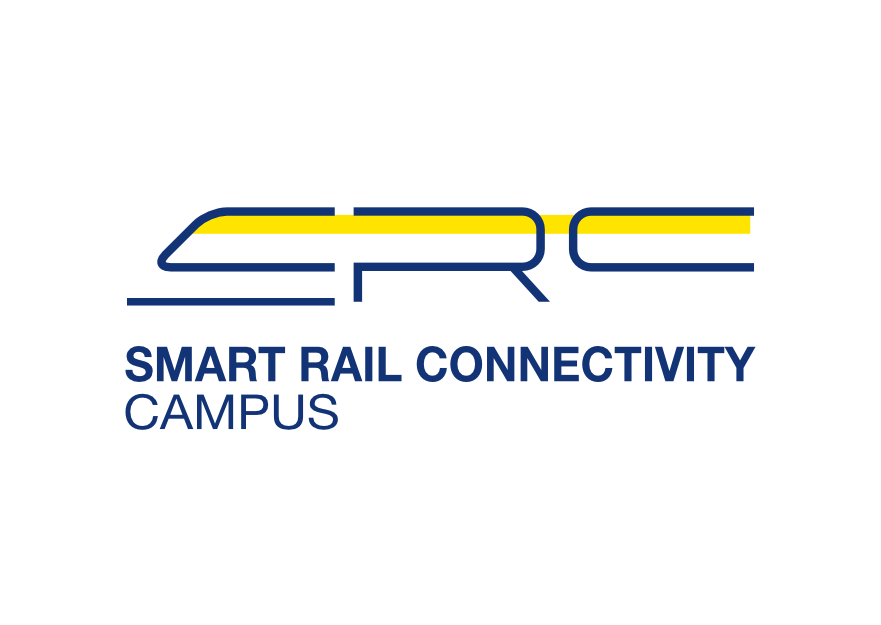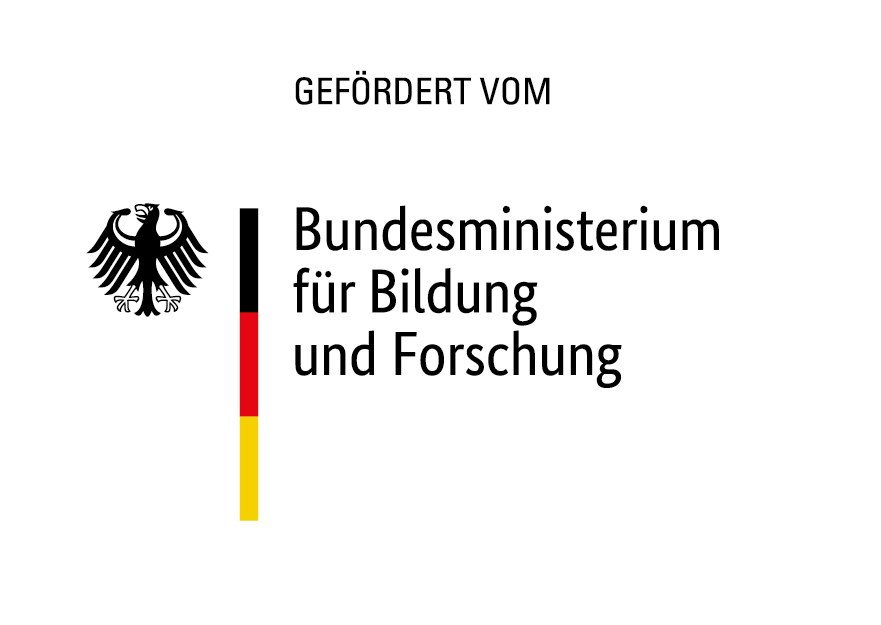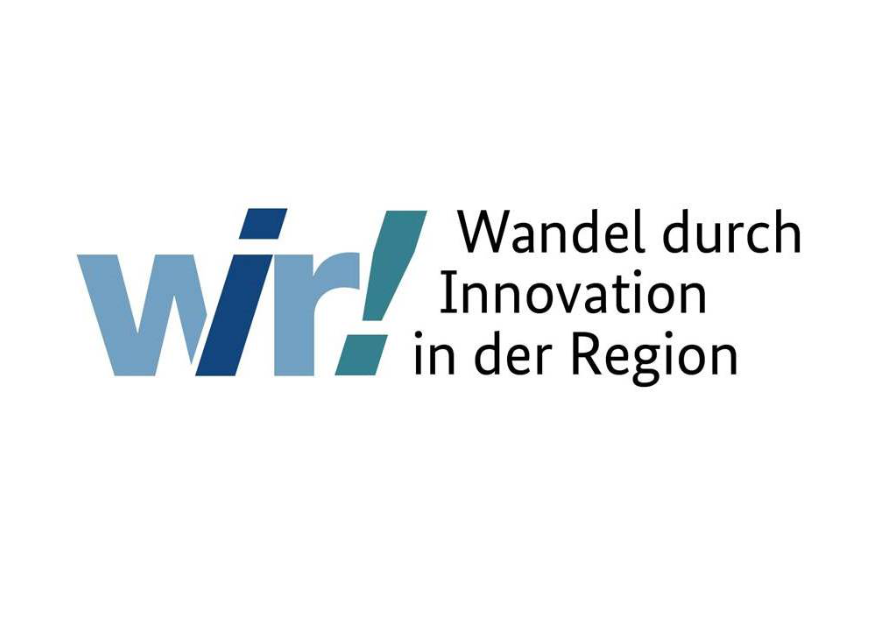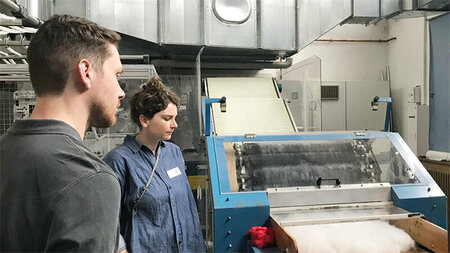Aktuelle Projekte
Nachhaltigkeit der Mobilität
Das Verbundprojekt „Nachhaltige Mobilität (NaMo)“ untersucht im Rahmen des Smart Rail Connectivity Campus (SRCC) im Erzgebirgskreis die im Zentrum der Mobilität stehenden Nutzer und deren Bedürfnisse sowie Einstellungen, um die erfolgreiche Gestaltung von Mobilitätsinnovationen und deren Integration in bestehende gesellschaftliche Strukturen zu unterstützen.
Hierzu werden die Nutzer und weitere bedarfsinduzierende Stakeholder in den Mittelpunkt der Untersuchung gestellt, um die der Mobilität zugrunde liegenden Ursachen, sprich Bedürfnisse, zu erheben und damit die Frage zu beantworten, warum Menschen im konkreten Fall mobil sein wollen bzw. müssen. Die Mobilitätsbedürfnisse und die mit diesen in wechselseitiger Beziehung stehenden Einstellungen zur Mobilität begründen schließlich das Mobilitätsverhalten. Letzteres entscheidet über die Inanspruchnahme von Mobilitätsangeboten und damit auch über den Erfolg und den Misserfolg neuer Mobilitätskonzepte am Markt.
Auf Basis von umfassenden empirischen Analysen werden von Februar 2022 bis Januar 2025 die mobilitätsbezogenen Bedürfnisse und Einstellungen von Nutzern im Erzgebirgskreis, sowie deren Verhalten analysiert und praktische Ableitungen aus diesen Erkenntnissen getroffen. Damit wird die Nachhaltigkeit aktueller und zukünftiger Mobilitätsprojekte gesteigert und eine wesentliche Forschungslücke im Bereich der Mobilitätsinnovation geschlossen.
Einbettung und Ziel des Projekts
„NaMo“ ist als Verbundprojekt der TU Chemnitz in den SRCC eingebettet, welcher im Rahmen des Programms „WIR! – Wandel durch Innovation in der Region“ durch das Bundesministerium für Bildung und Forschung gefördert wird.
WIR! fördert Projekte, die einen nachhaltigen Strukturwandel durch die Bildung regionaler Innovationsbündnisse aus Forschungseinrichtungen, Unternehmen und zivilgesellschaftlichen Akteuren in strukturschwache Regionen anstoßen sollen.
In diesem Rahmen ist es Ziel des SRCC als neutrale institutionelle und infrastrukturelle Plattform im Erzgebirgskreis Innovationen im Feld der digitalen Vernetzung und Kommunikation im Schienenverkehr zu initiieren und zu befördern, die vor allem schrittweise das automatisierte Fahren auf der Schiene und die Integration des Bahnverkehrs in multimodal vernetzte Mobilitätsangebote ermöglichen. Dadurch soll nachhaltige Mobilität in der Region gefördert und ermöglicht sowie ein Beitrag zum wirtschaftlichen Erfolg der beteiligten Unternehmen geleistet werden.
Ziele von „NaMo“ sind daher die Entwicklung einer Methodik zur Gestaltung bedürfnisgerechter und nachhaltiger Mobilitätsansätze und die Ableitung konkreter Gestaltungsempfehlungen für nachhaltige Mobilität in der Wirtschafts- und Tourismusregion Erzgebirge.
Ansprechpartner
JenErgieReal
„Reallabore der Energiewende“ – Energieoptimierte Quartiere
Projektlaufzeit: 01.10.2022 – 30.09.2027
Kurzbeschreibung
Das Forschungs- und Transferprojekt JenErgieReal versteht sich als Blaupause für die zukünftig ganzheitliche Versorgung mit elektrischer und thermischer Energie sowie der Integration der Mobilität als Bindeglied.
Die Haupttreiber des Energieverbrauchs Verkehr, Industrie, Gewerbe und Wohnen werden hierbei sektorenübergreifend betrachtet und die Implementierung in einem exemplarischen Großvorhaben wissenschaftlich begleitet.
Das Gesamtziel von JenErgieReal ist die Demonstration der Sektorenkopplung durch innovative Kraftwerksstrukturen zur Realisierung einer bezahlbaren Energiewende. Die zentralen Themen des Projektes JenErgieReal fokussieren die Netzdienlichkeit und zielen auf die Netzstabilisierung ohne Netzausbau ab. Maßnahmen, welche dies ermöglichen, umfassen die Lastspitzenglättung, die Lastensteuerung, auch aus dem vorgelagerten Netz, sowie eine verringerte Rückeinspeisung.
In den verschiedenen Arbeitsthemen werden Lösungen für zukünftige Quartiere vom Endverbraucher bis zum Erzeuger entwickelt und realisiert. Das regulatorische Lernen nimmt dabei eine wichtige Rolle ein.
Die Demonstration der Ergebnisse erfolgt als Reallabor in der Stadt Jena.
Teilprojekt am Lehrstuhl
Laufzeit: 07/2023-04/2024
Unterstützung der Projektpartner an der FH Zwickau und der Ernst-Abbe-Hochschule Jena bei der Planung, Konzeption und Organisation der empirischen Erhebungen, der theoriegeleiteten Auswertung sowie der Aufbereitung der Ergebnisse für die Publikation in wissenschaftlicher Fachliteratur.
Ansprechpartner
Projektpartner
- Stadtverwaltung Jena
- Stadtwerke Jena Netze GmbH
- Stadtwerke Energie Jena Pößneck GmbH
- jenawohnen GmbH
- AWO Regionalverband Mitte-West-Thüringen e.V.
- Metrona Union GmbH
- Westsächsische Hochschule Zwickau
- Ernst-Abbe-Hochschule Jena
- TU Chemnitz

QuaSiSocI – Qualitätssicherung bei sozialen Innovationen
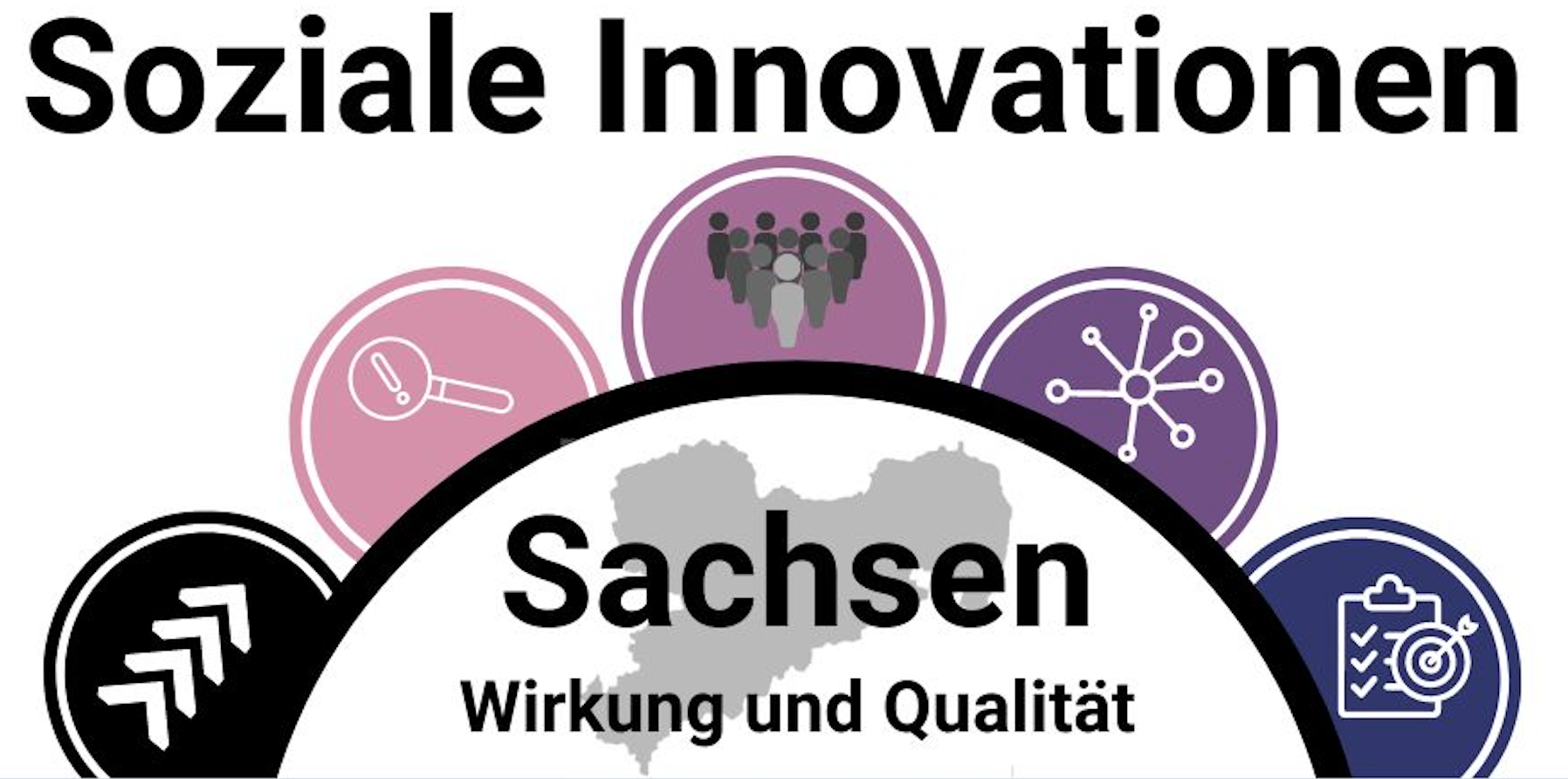
Unser Grundverständnis zu sozialen Innovationen
Soziale Innovationen sind Innovationen, die gesellschaftliche Herausforderungen adressieren und in einem Prozess neue soziale Praktiken für eine bestimmte Gesellschaftsgruppe erdenkt, ausprobiert, evaluiert und schließlich verankert. Dabei haben soziale Innovationen oft einen regionalen Bezug und betten sich in das bestehende politische, kulturelle und wirtschaftliche System ein, welches die Entwicklung sozialer Innovationen beeinflussen und damit auch fördern bzw. verlangsamen oder verhindern können. Soziale Innovationen durchlaufen einen mehrstufigen Prozess bis sie schließlich Anwendung bei der Zielgruppe finden. Ob und wie neu neue soziale Praktiken sind, lässt sich aus den verschiedenen Blickwinkeln betrachten. Hier kann z. B. nach der Zielgruppe, der anbietenden Organisation oder der Region entschieden werden, ob sie in diesem Kontext neu ist und was daran.
Relevante wissenschaftliche Perspektiven auf die Thematik Qualitätssicherung sozialer Innovationen
Qualitätssicherung und Wirkungsmessung zu sozialen Innovationen sowie deren konkrete Umsetzung sind aktuelle wissenschaftliche Fragestellung, die auch eine hohe praktische Relevanz haben. Dabei lassen sich verschiedene theoretische Konzepte verwenden, um soziale Innovationen hinsichtlich deren Qualität einzuschätzen. Wir verstehen Qualitätssicherung sozialer Innovationen als eine übergeordnete Perspektive, die sich aus der Abgrenzung sozialer Innovation, deren Entwicklung in einzelnen Phasen, der Einschätzung der Neuartigkeit sowie der Beurteilung von Input, Output, Outcome und Impact zusammensetzt. Ein erster Schritt ist, festzuhalten, was soziale Innovationen definiert, sie charakterisiert und von anderen Innovationsarten abgrenzt. Damit lassen sich praktische Vorhaben z. B. aufgrund ihres Bezuges zu einer bestimmten gesellschaftlichen Problemlage zuordnen. Mithilfe eines Phasenmodellen zum Ablauf sozialer Innovationen lassen sich praktische Vorhaben bzgl. deren Entwicklung einordnen, ob diese in der Idee-, Konzeptions-, Erprobungs- oder in der Skalierungsphase sind bzw. bereits Anwendung finden. Mithilfe der Phasenperspektive lässt sich einschätzen, ob die praktischen Vorhaben in ihrer Entwicklung voranschreiten, welchen Unterstützungsbedarf sie in den Phasen kommunizieren, erhalten und annehmen. Die Reifegrade von sozialen Innovationen ermöglichen die Feststellung, für wen und wie neu praktische Vorhaben sind. Damit können auch praktische Vorhaben miteinander verglichen bzw. hinsichtlich ihrer Kontextspezifika eingeschätzt werden. Ergänzend können Wirkungsmessungsaspekte in den Fokus genommen werden, die sich z. B. mit dem Impact für die Gesellschaft auseinandersetzen. Dazu gehört es auch Inputfaktoren zu erkennen, die sich z. B. bereits bei der Beurteilung der Phasen der sozialen Innovation gezeigt haben. Hinsichtlich Output, Outcome und Impact lassen sich Verbindungen zum sozialen Problem, dem Anfangspunkt sozialer Innovationen, bzw. zum Reifegrad und der Neuartigkeit eines praktischen Vorhabens ziehen.
Projektpartner
Projektlaufzeit
01.06.2024 - 31.12.2025
Ansprechpartner


